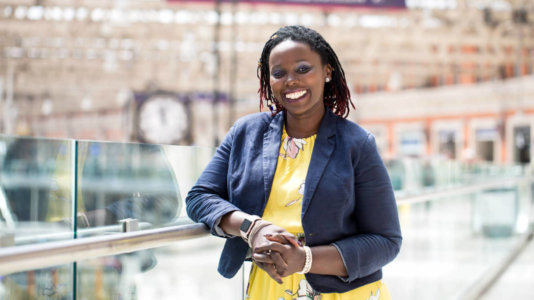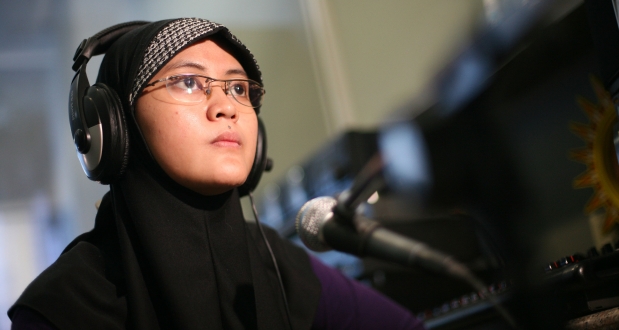- About
- Topics
- Picks
- Audio
- Story
- In-Depth
- Opinion
- News
- Donate
-
Signup for our newsletterOur Editors' Best Picks.Send
Read, Debate: Engage.
| December 19, 2018 | |
|---|---|
| topic: | Economic Inclusion |
| tags: | #coding, #SDG, #Mariéme Jamme, ##IamtheCode, #tech hubs |
| located: | Senegal |
| by: | Bob Koigi |
This, she hopes, will be a first but crucial step in enhancing technology literacy and ultimately address some of the most pressing global problems that affect women including poverty, marginalisation and gender inequality.
Despite the major strides made in ensuring access to education for all, over 60 million children of primary school age world over are out of school and 200 million teenagers, most of them girls, do not attend secondary schools according to UNESCO. In Africa, up to 28 million girls have no access to education and are prone to early marriages, prostitution and human trafficking.
Mariéme is courting technology to ensure that these girls are empowered with the requisite skills that allow them to contribute to personal growth and global development. She has started the iamthecode movement which has seen her transverse the world in search of these girls. The movement mobilises investors, governments and private sector to develop Science, Technology, Engineering, Arts, Mathematics, Entrepreneurship and Design, STEAMED, education as a way of advancing the U.N.’s Sustainable Development Goals. She wants to create the next set of digital leaders while chaperoning a global tech movement.
And it is personal for her. Abandoned by her mother at a young age in Senegal and having been forced to live in 28 foster houses with no formal education, she was trafficked to Paris where she survived in a tube station for three years before being rescued by the police and placed in a rescue centre. She managed to read and write when she was 16. When she eventually relocated to the UK she taught herself software programming and never looked back. She has since built a series of organisations around women empowerment but Iamthecode remains her favourite.
The programme that is now in 58 countries has already benefitted 7,300 people in 54 countries around the world. “I want to use data as a commodity. To make sure that every African is accounted for. That the young women who are trafficked are accounted for. We cannot talk about sustainable development goals without counting people,” she said while delivering her speech at TEDxMünchenSalon.
From the hinterlands of Afghanistan, the Chinese schools to refugee camps in Northwestern Kenya she has met thousands of girls who continue to inspire her cause.
In her recent visit to Kakuma and Kalobeyei refugee camps in Northwestern Kenya, she was able to meet and influence 250,000 people, majority who have faced difficult childhood like her as a result of the conflict in South Sudan and Somalia.
“The evidence shows that if we do not break down barriers and help move girls in the technology industry forward through inclusion, we will be creating layers of citizenship and a digital divide in our society,” she says in her website.
Brenda Katwesigye one of the beneficiaries of the movement’s methodology runs Wazi Vision a Ugandan company that provides affordable eye care to children between 6 and 15 years through the use of virtual reality technology.
Iamthecode has become the first globally to be recognized by the World Economic Forum, UBS, Microsoft, the U.N. High-Level Panel on Women’s Economic Empowerment and U.N. Women for its approach to connecting STEM education with the sustainable development goals.
Mariéme, on the other hand, has received a series of accolades for her initiative. UNICEF and the Bill and Melinda Gates Foundation last year honoured her for her contributions towards the SDGs. She has also featured in the 2017 Powerlist of Britain’s 100 most influential people of African and African-Caribbean heritage.
In 2013 she also got nominated by the World Economic Forum as a Young Global Leader due to her active participation in women empowerment.
With tech hubs, like JJiguene in Senegal which she has helped establish, hackathons and Slum Coder programmes, Mariéme believes that her movement will bring technology closer to the people who need it and enable them to find solutions to their everyday problems while giving them jobs and good lives.
“We have everything we need to make the change. We have educators, tools, money, and commitments. We must do this now,” she further added in her TedTalks speech.

By copying the embed code below, you agree to adhere to our republishing guidelines.
